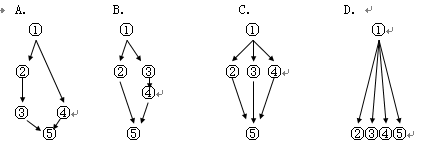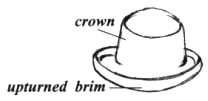题目内容
The twentieth century saw greater changes than any century before. Changes for the better, changes for the worse, changes that brought a lot of benefits to human beings, changes that put man in danger. Many things caused the changes, but, in my opinion, the most important was the progress in science.
Scientific research in physics and biology has vastly broadened our views. It has given us a deeper knowledge of the structure of matter and of the universe. It has brought us a better understanding of the nature of life and of its continuous development. Technology in the application of science has made big advances that have benefited us in nearly every part of life.
The continuation of such activities in the twenty-first century will result in even greater advantages to human beings; in pure science—a wider and deeper knowledge in all fields of learning; in applied science--- a more reasonable sharing of material benefits, and better protection of the environment.
Sadly, however, there is another side to the picture. The creativity of science has been employed in doing damage to mankind. The application of science and technology to the development and production of weapons of mass destruction has created a real danger to the continued existence of the human race on this planet. We have seen this happen in the case of nuclear weapons. Although their actual use has so far occurred only in the Second World War, the number of nuclear weapons that were produced and made ready for use was so large that if the weapons had actually been used, the result could have been the ruin of the human race, as well as of many kinds of animals.
William Shakespeare said, “The web of our life is of a mingled yarn, good and ill together.” The above brief review the application of only one part of human activities—science seems to prove what Shakespeare said. But does it have to be so? Must the ill always go together with the good? Are we biologically programmed for war?
小题1:Which of the following best shows the structure of the passage?

="Paragraph" 1,②="Paragraph" 2, ③="Paragraph" 3, ④="Paragraph" 4,⑤="Paragraph" 5)
小题2: From the fourth paragraph, we can infer that ______.
小题3: The underlined word “mingled” most probably means______
小题4:What do you think the author is most likely to suggest if he continues to write?
Scientific research in physics and biology has vastly broadened our views. It has given us a deeper knowledge of the structure of matter and of the universe. It has brought us a better understanding of the nature of life and of its continuous development. Technology in the application of science has made big advances that have benefited us in nearly every part of life.
The continuation of such activities in the twenty-first century will result in even greater advantages to human beings; in pure science—a wider and deeper knowledge in all fields of learning; in applied science--- a more reasonable sharing of material benefits, and better protection of the environment.
Sadly, however, there is another side to the picture. The creativity of science has been employed in doing damage to mankind. The application of science and technology to the development and production of weapons of mass destruction has created a real danger to the continued existence of the human race on this planet. We have seen this happen in the case of nuclear weapons. Although their actual use has so far occurred only in the Second World War, the number of nuclear weapons that were produced and made ready for use was so large that if the weapons had actually been used, the result could have been the ruin of the human race, as well as of many kinds of animals.
William Shakespeare said, “The web of our life is of a mingled yarn, good and ill together.” The above brief review the application of only one part of human activities—science seems to prove what Shakespeare said. But does it have to be so? Must the ill always go together with the good? Are we biologically programmed for war?
小题1:Which of the following best shows the structure of the passage?

="Paragraph" 1,②="Paragraph" 2, ③="Paragraph" 3, ④="Paragraph" 4,⑤="Paragraph" 5)
小题2: From the fourth paragraph, we can infer that ______.
| A.a great many nuclear weapons were actually used for war |
| B.a large number of nuclear weapons should have been used for war |
| C.the author is doubtful about the ruin of human beings by nuclear war |
| D.the author is anxious about the huge number of nuclear weapons on the earth |
| A.simple | B.mixed | C.sad | D.happy |
| A.Further application of science to war. |
| B.More reading of William Shakespeare. |
| C.Proper use of science in the new century. |
| D.Effective ways to separate the good from the ill. |
小题1:A
小题2:D
小题3:B
小题4:D
试题分析:作者在第一段提出论点:The progress in science caused the changes in the twentieth century (二十世纪科技的进步带来巨变),接下来,第二、三、四段作者提出正反两面的论据:The progress in science has brought us advantages and the continuation of the progress will surely result in even greater advantages (科技的进步已经给我们带来好处;持续的科技的进步肯定会给人类带来更大的好处)。第四段作者从另一方面提出论据:The creativity of science has been employed in doing damage to mankind. (但是,科技的进步也可能给人类带来毁灭)。再接下来,按行文结构作者应该做出结论,但作者在第五段并没有直接说出不言自明的结论, 即We should separate the good from the ill (我们应该取其利而舍其弊), 而是用了几个问句:But does it have to be so? (难道情况非得这样吗?) Must the ill always go together with the good (难道坏的东西一定要伴随着好的东西)? Are we biologically programmed for war (难道人类非得策划战争)? 这样可引起读者对结论的深入思考,引起读者的重视。
小题1:文章结构题。在文章首段的最后一句话,通过but找到主题,第2段、第3段的主题句都出现了段尾,都讲了科技带来的benefit,从正面印证了主题。而第4段首句的sadly和however,表明文章转入另外一个方面的论证,而且是反面的的论证。全文尾段用Shakespeare的话再次总结主题。根据这个分析,可以很容易地看出这篇文章的整体结构是“总-分-总”式,在“分”的部分有分为正、反两方面,与A项意思一致。
小题2:推理判断题。根据文章第四段可以看出作者对核武器的担忧。D 。
小题3:词义推测题。根据good and ill weapons可以猜测出mingle的意思为mixed。所以选B。
小题4:推理判断题。根据第五段我们可以推理判断出作者继续写的是如何有效的将good和ill分开。从But does it have to be so? Must the ill always go together with the good? 可以知道答案选D。

练习册系列答案
相关题目

